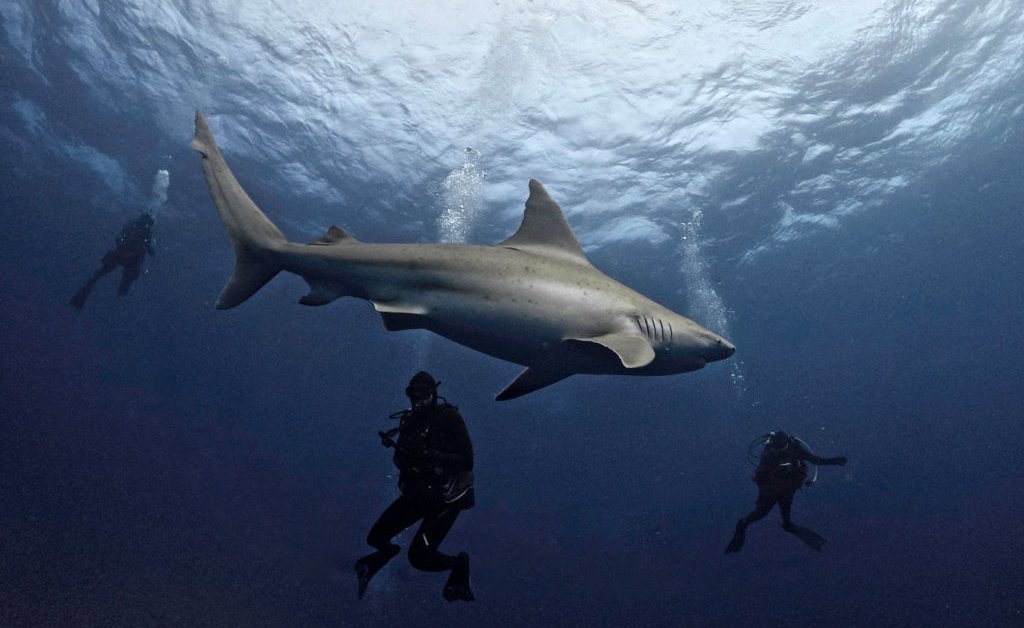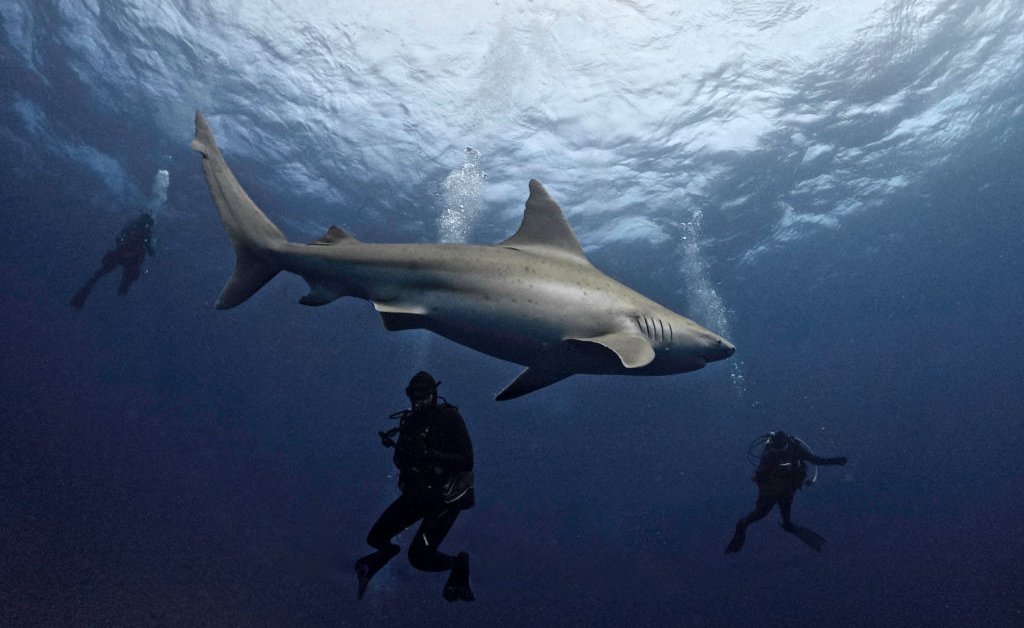From Hollywood To The Ocean: Jaws And The Decline Of Global Shark Populations

Welcome to your ultimate source for breaking news, trending updates, and in-depth stories from around the world. Whether it's politics, technology, entertainment, sports, or lifestyle, we bring you real-time updates that keep you informed and ahead of the curve.
Our team works tirelessly to ensure you never miss a moment. From the latest developments in global events to the most talked-about topics on social media, our news platform is designed to deliver accurate and timely information, all in one place.
Stay in the know and join thousands of readers who trust us for reliable, up-to-date content. Explore our expertly curated articles and dive deeper into the stories that matter to you. Visit Best Website now and be part of the conversation. Don't miss out on the headlines that shape our world!
Table of Contents
From Hollywood to the Ocean: Jaws and the Decline of Global Shark Populations
The summer of 1975 saw the release of Steven Spielberg's Jaws, a cinematic masterpiece that instilled a primal fear of sharks in a generation. While the film immortalized the great white shark in popular culture, its legacy extends beyond the silver screen, unfortunately contributing to a devastating decline in global shark populations. This article explores the complex relationship between Jaws, its impact on public perception, and the ongoing crisis facing these magnificent creatures.
The Jaws Effect: Fear and Misconception
Jaws undeniably captivated audiences, becoming a cultural phenomenon. However, its portrayal of sharks as mindless, man-eating killing machines fueled a wave of fear and misinformation that persists to this day. The film's success led to a surge in shark hunts, with many people aiming to eliminate these animals perceived as dangerous threats. This fear-based reaction, unfortunately, overshadowed the crucial ecological role sharks play in maintaining healthy ocean ecosystems.
The Ecological Importance of Sharks
Sharks are apex predators, vital to the balance of marine life. Their presence regulates prey populations, preventing overgrazing of coral reefs and seagrass beds. A decline in shark numbers triggers a cascade effect, disrupting entire food webs and potentially leading to biodiversity loss. This ecological imbalance has far-reaching consequences for ocean health and, ultimately, for humans who rely on these ecosystems for sustenance and livelihoods.
The Stark Reality: Declining Shark Populations
The reality is grim. Overfishing, particularly through unsustainable fishing practices like finning (removing fins for shark fin soup), has decimated shark populations worldwide. Many shark species are now classified as vulnerable, endangered, or critically endangered by the IUCN Red List. The loss of these apex predators poses a significant threat to ocean biodiversity and the health of our planet.
- Bycatch: Many sharks are unintentionally caught as bycatch in fishing nets targeting other species.
- Habitat destruction: Coastal development and pollution contribute to the loss of shark habitats.
- Climate change: Rising ocean temperatures and ocean acidification are also impacting shark populations.
Moving Beyond Fear: Conservation Efforts
While Jaws undeniably contributed to negative perceptions of sharks, the film also inadvertently sparked a renewed interest in marine life. Today, conservation efforts are gaining momentum, focusing on:
- Sustainable fishing practices: Promoting responsible fishing methods and reducing bycatch.
- Shark sanctuaries: Establishing protected areas where sharks can thrive.
- Raising awareness: Educating the public about the importance of shark conservation and dispelling myths perpetuated by films like Jaws.
Organizations like the Pew Charitable Trusts, the Ocean Conservancy, and the World Wildlife Fund are actively involved in shark conservation initiatives, advocating for stronger protections and sustainable management of shark populations. Their work is critical in turning the tide and ensuring the survival of these magnificent creatures.
A Call to Action: Protecting Our Oceans
The legacy of Jaws is complex. While it cemented the shark's place in popular culture, it also inadvertently contributed to a crisis threatening their survival. We now have a responsibility to move beyond the fear and misinformation perpetuated by the film and actively participate in conservation efforts. Supporting sustainable seafood choices, advocating for stronger environmental policies, and educating others about the importance of sharks are all crucial steps in protecting these vital components of our ocean ecosystems. The future of sharks, and indeed the health of our oceans, depends on it.

Thank you for visiting our website, your trusted source for the latest updates and in-depth coverage on From Hollywood To The Ocean: Jaws And The Decline Of Global Shark Populations. We're committed to keeping you informed with timely and accurate information to meet your curiosity and needs.
If you have any questions, suggestions, or feedback, we'd love to hear from you. Your insights are valuable to us and help us improve to serve you better. Feel free to reach out through our contact page.
Don't forget to bookmark our website and check back regularly for the latest headlines and trending topics. See you next time, and thank you for being part of our growing community!
Featured Posts
-
 Ashley Judds Unfiltered Swimsuit Photo Beauty Beyond The Spotlight
Jul 26, 2025
Ashley Judds Unfiltered Swimsuit Photo Beauty Beyond The Spotlight
Jul 26, 2025 -
 A Candlelit Evening Celebrating The Music Of Adele
Jul 26, 2025
A Candlelit Evening Celebrating The Music Of Adele
Jul 26, 2025 -
 Jaws Legacy Examining The Films Influence On Public Perception Of Sharks
Jul 26, 2025
Jaws Legacy Examining The Films Influence On Public Perception Of Sharks
Jul 26, 2025 -
 Strengthening Bonds Meaningful Ways To Celebrate National Girlfriends Day
Jul 26, 2025
Strengthening Bonds Meaningful Ways To Celebrate National Girlfriends Day
Jul 26, 2025 -
 Ashley Judds Body Positive Swimsuit Message We Dont Care Club
Jul 26, 2025
Ashley Judds Body Positive Swimsuit Message We Dont Care Club
Jul 26, 2025
Latest Posts
-
 Exploring The Jack Kirby Homage In Fantastic Four First Steps
Jul 27, 2025
Exploring The Jack Kirby Homage In Fantastic Four First Steps
Jul 27, 2025 -
 The Things Synagogue Visit In Fantastic Four First Steps
Jul 27, 2025
The Things Synagogue Visit In Fantastic Four First Steps
Jul 27, 2025 -
 Religious Themes In Marvels Fantastic Four First Steps
Jul 27, 2025
Religious Themes In Marvels Fantastic Four First Steps
Jul 27, 2025 -
 The Epstein Case Evolves Trumps Accusations Against Beyonce And Oprah
Jul 27, 2025
The Epstein Case Evolves Trumps Accusations Against Beyonce And Oprah
Jul 27, 2025 -
 Gaza Journalists Face Starvation Documenting Their Plight
Jul 27, 2025
Gaza Journalists Face Starvation Documenting Their Plight
Jul 27, 2025
